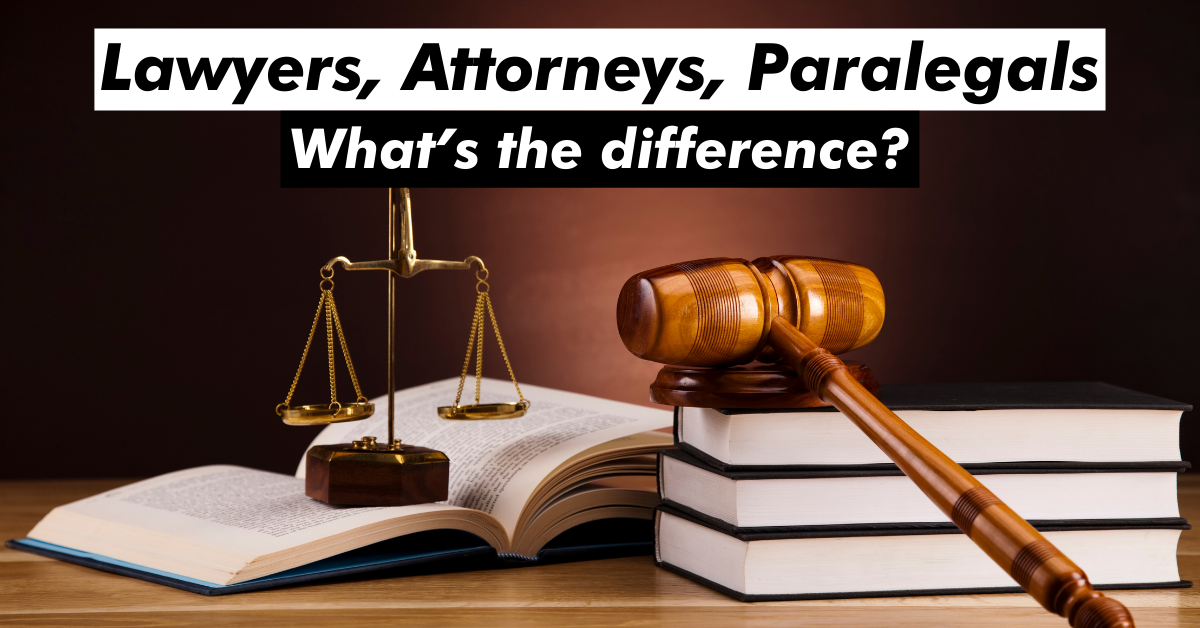
What is the Difference Between an Attorney, Lawyer, and Paralegal
Legal jargon can be confusing for those who don’t work with it daily. This article will review exactly what different people do within the practice of law.
What is a Lawyer?
Lawyers are licensed professionals able to practice law, allowing them to advise and represent others in legal matters. Some lawyers even have specialties such as Estate Planning & Probate, Business/Corporate Law, Taxes, Bankruptcy, and other areas.
What is an Attorney?
Attorneys are lawyers. The terms “attorney” and “lawyer” are used interchangeably to refer to people licensed to practice law. Thus, both can prosecute or defend others in a court of law, cross-examine witnesses, and apply the law to the particular facts and circumstances of a client’s case.
What is a Paralegal?
A paralegal performs tasks to help attorneys with their cases. Usually, a paralegal’s work includes administrative tasks as well as research, gathering materials for trials, drafting discovery requests and transaction documents, and assisting in preparation for court appearances and closings.
What are the Differences?
Lawyers (aka attorneys) have to be licensed to practice law. Before becoming licensed, lawyers must go through a series of steps; the first of which is to get a “J.D.”.
A J.D. is an abbreviation for Juris Doctor, a law degree that is received once a person graduates from law school. The degree does not mean that the graduate is ready to practice law. They must then take the bar exam, which is a grueling test that ensures the person taking it truly knows their way around the basics of the law.
Finally, to get a license to practice law, there are state requirements. In Michigan someone must have their J.D., have passed the bar exam, and go through a “Character and Fitness” examination which is an extensive background check on the person attempting to become a licensed Michigan attorney.
Only upon completing each of the listed steps may a person be recognized as a lawyer or an attorney.
Paralegals are also involved in the law but are not licensed. This means they cannot offer legal advice as a lawyer or attorney could. Often times paralegals receive formal training through community college or other certification programs and extensive on-the-job training to hone their skills in different practice areas.
Check out Our Team or call us at (248) 380-0000 to learn which Fausone & Grysko attorney is the right one for you!
